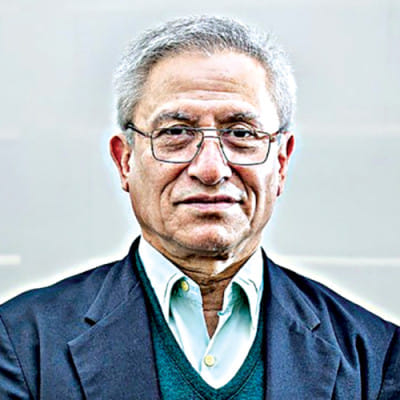Inflation: more to come

Inflation is rising in Bangladesh as it is in several advanced and emerging economies. Increased headline inflation in February was driven by a spike in food inflation. The 12-month moving average inflation has been on an upward trend since the November 2019 to October 2020 period.
While demand recovery played a role, as evinced by increased prices of consumer items such as furniture and furnishings, the predominant driver has been cost-push imported largely from abroad and domestic price adjustments of oil, gas, and transport.
Pent-up demand fuelled by stimulus and pandemic disruptions is helping inflation spread around the world through global factors like higher food and energy prices, and soaring shipping costs.
Bangladesh's inflation has been more moderate compared with Sri Lanka (15.1 per cent), Pakistan (12.2 per cent), and Brazil (10.4 per cent), not to mention Venezuela (340.4 per cent), Argentina (52.3 per cent) and Turkey (54.4 per cent).
However, it is similar to India (6.1 per cent) and Thailand (5.8 per cent) while countries like Vietnam (1.42 per cent), Philippines (3 per cent) and Indonesia (2.1 per cent) have done much better.
Bangladesh's relatively tepid price gains may see greater momentum in coming months. The outlook remains uncertain, and Bangladesh Bank should be ready to tighten policies if inflation pressures and expectations mount.
But if we recognise that the root of inflation is from a supply shock rather than excessive demand, it is prudent to keep the monetary policy accommodative. Bangladesh Bank seems intent to stay "behind the curve" in allowing the economy to recover from the Covid-19 pandemic.
It will be important not to lose sight of the fact that the cost-push levers are now far different than in the recent past due to a global commodities contagion. The key risk is the possibility that world commodity prices will stay elevated for a prolonged period because of Russia's invasion of Ukraine, pressuring inflationary tendencies further.
The authorities should carefully monitor the pass-through of international prices to domestic inflation to calibrate appropriate actions going forward. The central bank should do some sensitivity analyses to gauge how much inflation in Bangladesh would be hit if the average world price of oil stays at around $95 per barrel or rises to $120-140 per barrel.
Although inflation breached the government's target of 5.5 per cent, market players were earlier confident that inflation would eventually dissipate, but not anymore. With geopolitical conflict raging, the turn in global commodity prices is by no means imminent. We can very well expect inflation expectations to unravel quickly in the coming months in major markets around the globe.
Fiscal policy response and the government's stance on the administered prices of oil, gas and power will make a big difference to the direction of inflation in Bangladesh in the months to come. The immediacy of adjusting the administered prices can be pushed back through a temporary increase in subsidies in the current fiscal year.
The government deserves plaudits for quickly initiating the Family Card programme that allows 10 million poor families access to edible oil, lentils, sugar, and chickpeas at prices well below the market value. The government has also waived VAT on edible oil at the retail, production and import levels.
These are good beginnings, but a lot more is needed to ensure that the Family Cards reach the poor and vulnerable, the tax waivers pass through retail prices and the number of beneficiaries in the existing social support programmes such as VGD, VGF, cash pension for the elderly, and the employment generation programme for the poor are expanded.
The writer is an economist.

 For all latest news, follow The Daily Star's Google News channel.
For all latest news, follow The Daily Star's Google News channel. 



Comments